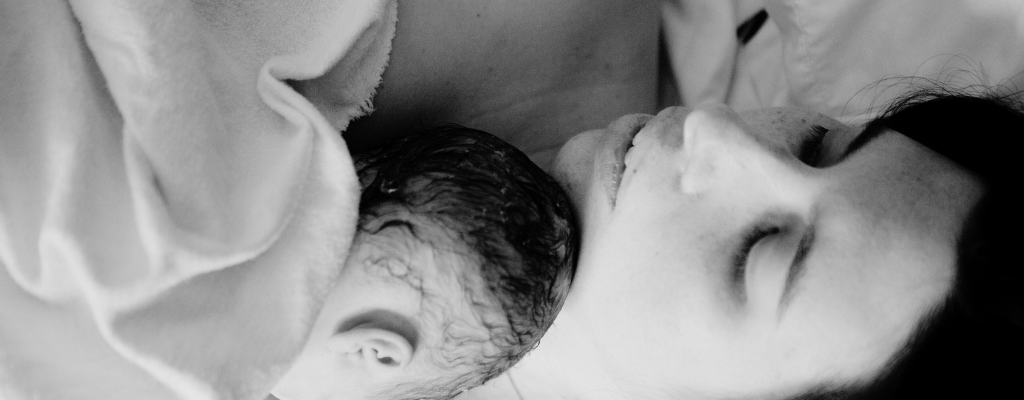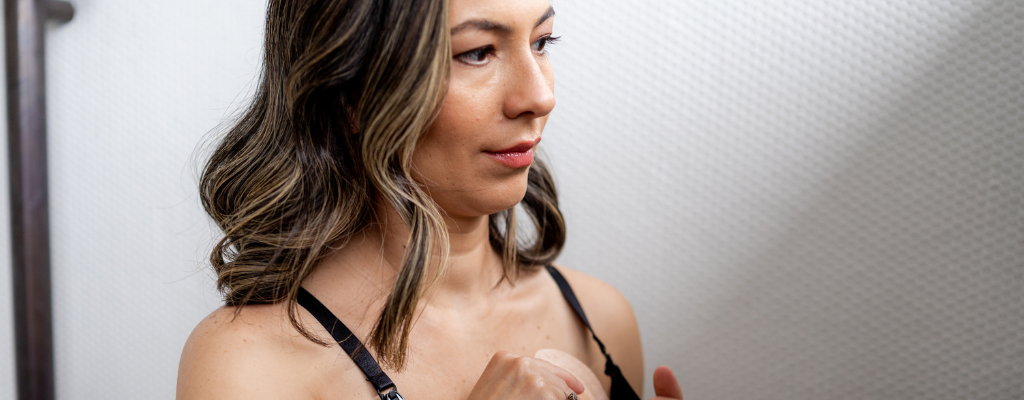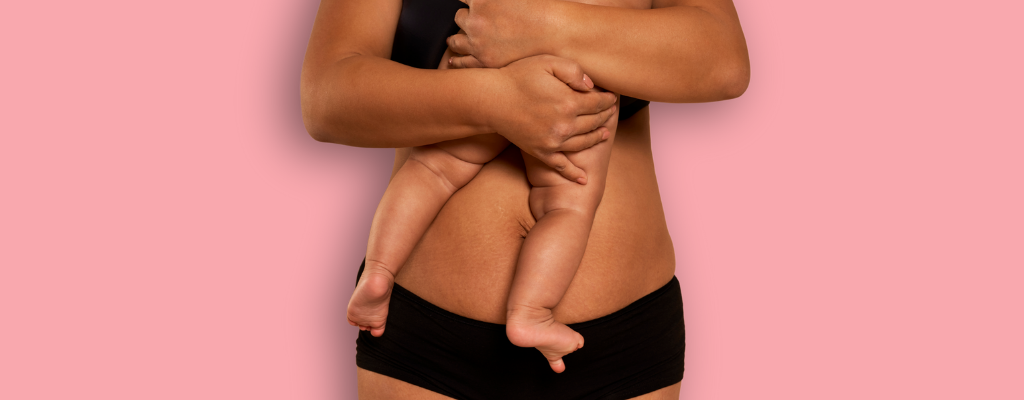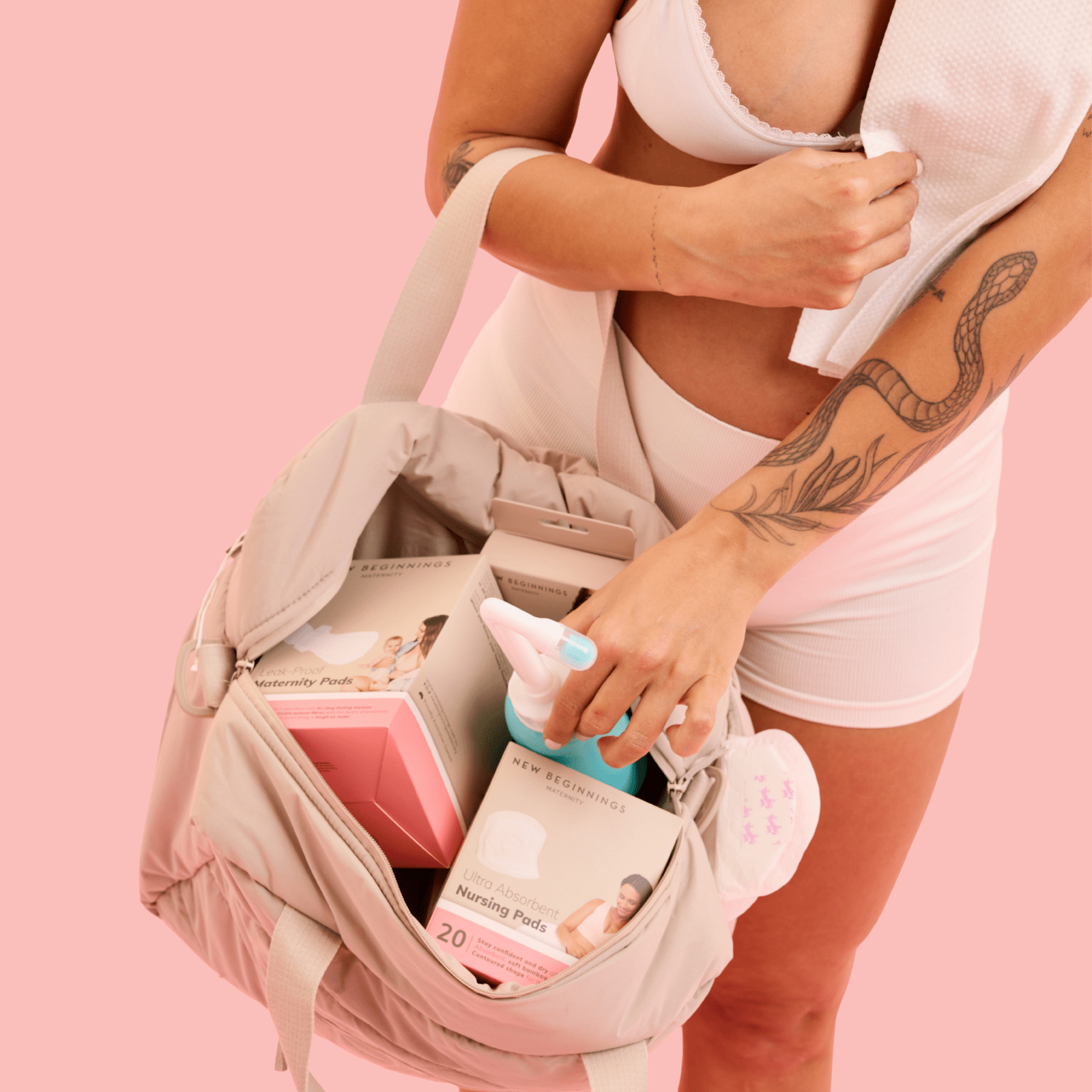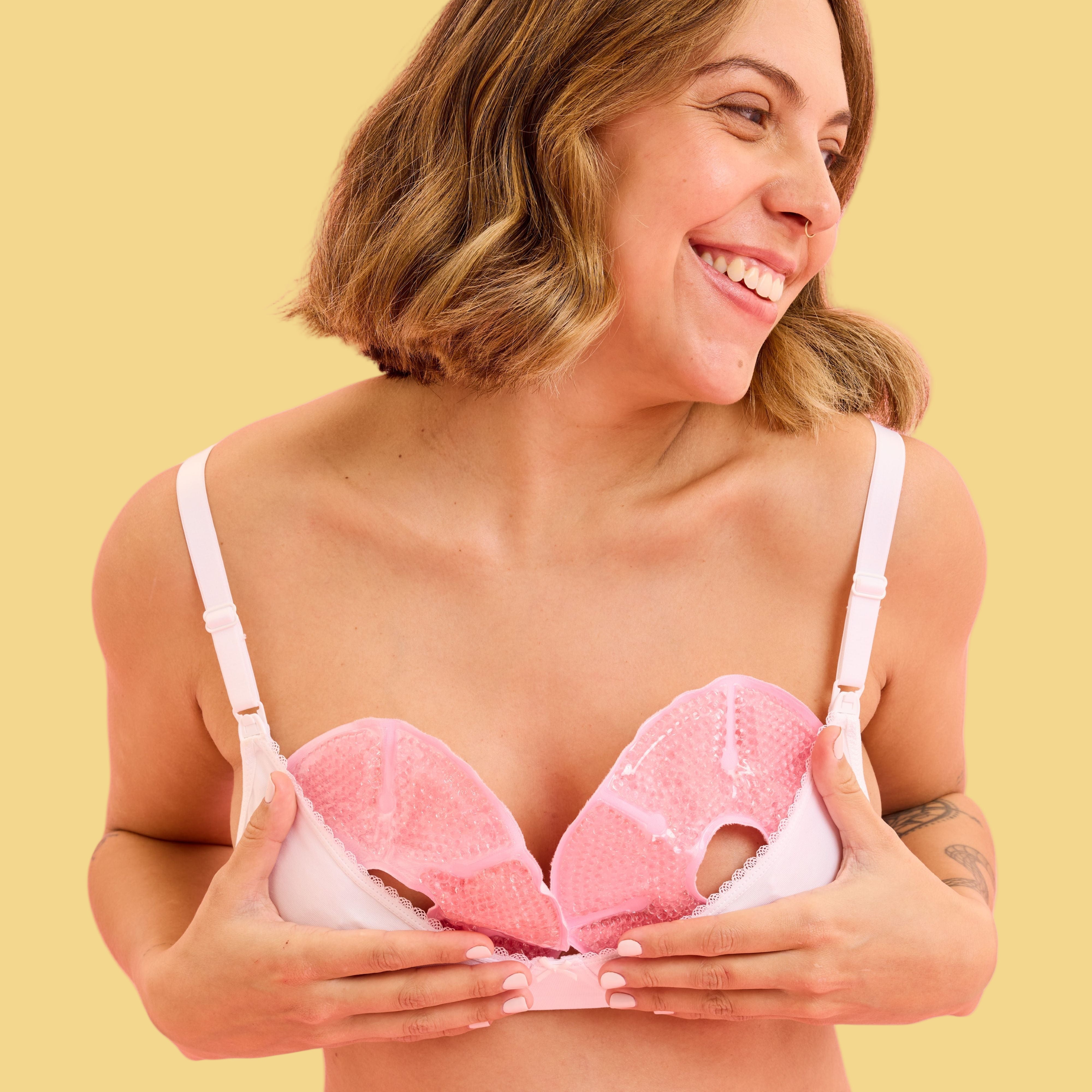Maternity Blog & News | New Beginnings
Unexpected Facts About Labour No One Tells You
Discover the surprising truths about labour no one tells you - shakes, emotions, placenta, and more. Real stories, raw honesty, and expert-backed facts.
Learn moreMaternity Pads vs Period Pads
Postpartum bleeding (lochia) is heavier, longer, and very different from a period—making maternity pads a must. Discover why regular pads don’t cut it, how long you’ll need maternity pads, and tips for a more comfortable recovery.
Learn moreMythbusting: Ways to bring on labour
Discover the truth behind popular labour induction myths! Learn what works, what doesn’t, and how to safely prepare for your baby's arrival with patience and expert-backed tips
Learn moreTop Postpartum Self-Care Tips & Must-Have Products for New Mums
In this blog, we'll explore the significance of stocking up on your emotional self-love cup, as well as those essential postpartum products.
Learn moreTMI Antenatal Classes!
New Job Application Giving birth to a baby and becoming a parent is like jumping into a new job and very quickly learning how to sink or swim. If you were to apply for a new job you may wish to do some preparation work before the big day and this is how I approached going to antenatal classes. You want to have a look into the company and what the job description is (like learning more about what happens to your body during childbirth and getting some more pointers for breastfeeding etc). You might have a look at the company staff and the building they are located in (like knowing how the maternity staff will help you, options for birthing rooms ie water births & the other facilities at the hospital you will be attending). Then ending your prospective job preparation with weighing up the pros and cons of this new position (like looking at your birth plan, knowing about pain options and what you may find difficult or easy as you become a new mum). Curriculum or KPIs Antenatal classes are kind of like your induction for the role that you are about to perform-child birth and becoming a parent. These information packed classes give you a blow by blow about what happens at every step in the later stages of pregnancy and the ins and outs (pun intended) of the labour process. For some people it’s all a bit too much and for others it’s a great way to learn about it all. Most of us sit somewhere in the middle, like myself with my ignorance in thinking that I have a few nieces, I’ve heard some stories, skimmed through a book and somehow I know the basics! Then you arrive, are handed a class schedule and you read some very foreign words like meconium, mucus plugs, stretch and sweeps and you start thinking…I’m not sure this was the job I applied for! Other Colleagues I found it nice to surround myself with other mums, to be and to watch weekly as they steadily expanded and swelled into an uncomfortable blob much like myself. I enjoyed hearing about why the changes were happening to my body and I found the whole labour explanation quite fascinating (although very graphic! ). My partner and I were able to ask and answer questions amongst a supportive group of peers and open up about what our expectations were pre and post birth. It was nice to hear that similar fears where shared throughout the group and then talk these through in bite size pieces. It was also great to learn some more practical skills like swaddling and changing a nappy. Signing the Contract I would highly recommend going to some sort of antenatal class if you are first time parents. Take the time to invest in learning more about what will happen, ask all the crazy questions that come to mind, why it happens and management plans. It’s also a chance to really touch base with your partner, build a stronger connection as a team and to be around individuals who are dealing with the same issues, in a safe environment. Having a baby and being a parent are both hands on roles and you do learn as you go but if someone was to give you a little bit of advice before you went to that job interview and it made the world or difference, wouldn’t you like to hear it? Author: Elise Bradfield @elise_bradfield
Learn moreLabour & Pregnancy: Best Laid Labour Plans | New Beginnings
As the final stages of pregnancy creep up on you, much like those swollen ankles, you know it’s time to start thinking about the arrival of this baby. I’ll never forget sitting in my antenatal class and having our teacher passionately describe how women have been birthing babies for thousands of years. How it’s such a natural process for the female body to contort and stretch for this very purpose. When I look back at my labour I would agree that it is a miraculous event and my body adapted very well but it didn’t go exactly to plan and holy moly was it painful! It’s all written in the word isn’t it? Labour.....meaning exertion, struggle, hard work and it is! Have a chat with your partner, OB or midwife about what is really involved during birth and have a loose birth plan – think about; - What type of birth do you want- water birth, natural, laying down, or resting on a fit ball? -What tools will aid you ie music, oils, breathing techniques, tens machine? - What type of support will you require from your partner ie pep talks, holding your hand, strong & silent, giving you a blow by blow as it happens, no touching at all? -What pain relief is available and are there any side effects for the baby? -What will happen if I need a cesarean and what does that recovery post baby look like? Here’s hoping everything runs smoothly but in the case your baby needs some extra support post birth, it’s important to know what you and your partner want to do. We decided should bub need to leave my side for any reason, my partner would follow at all times, I felt more comfortable knowing this. This will be an experience where you won’t know what to expect but you can be informed and have asked questions beforehand to help feel comfortable. Your midwife or OB will generally ask what your birth plan looks like so they can cater to you but please remember to be flexible. I had every intention of having a natural water birth and in the end I found the bath offered no relief and that gas was not sufficient enough to relieve the pain. I found the tens machine worked really well in redirecting my brains pain receptors but I did end up having an epidural that did not relieve me completely of pain (no one had told me that epidurals don’t always work) but definitely took the edge off. I knew myself enough to know when I needed extra assistance in the form of pain relief and I was able to continue with my intended plan and give birth to a beautiful baby. Let’s face it, giving birth is a heroic feat and it will test you and your partner’s determination and strength but what an amazing sight it is to see this beautiful baby at the end of all your hard work. Remember to be informed and aware and follow your plan but be flexible about adjusting it to suit the needs of you and your bub. Enjoy it, as much as it is the hard part, be in the moment and communicate with your partner and support team. You are not in this alone, there is a tiny being ready to be glued to your side for the rest of your life. Good Luck x Author: Elise Bradfield @elise_bradfield Image: @leahandeva!
Learn moreTop 5 Hospital Must Haves
Packing your hospital bag feels like such a milestone, doesn’t it? For me, it didn’t truly hit that I was about to become a mum until I started tossing things into a bag. My partner was not impressed by my last-minute packing (oops). Antenatal classes helped with the basics—like button-up pyjamas for feeding and socks because birthing suites are cold—but what I really wish someone had told me were the actual essentials that made those first few days easier. Here are my top 5 hospital bag must-haves for first-time or returning mummas. 1. Maternity Pads I’ll be honest: I thought big supermarket pads would do the trick after birth. Nope. Postpartum bleeding (lochia) is heavy and lasts weeks, not days, so you’ll want proper maternity pads. They’re more absorbent, longer, and softer—exactly what your recovering body needs. The New Beginnings Maternity Pads were a lifesaver for me: comfortable, the right length, and no stressing about leaks every time I stood up. Stock up—running out in hospital is not fun[1]. 2. Maternity Bra’s One thing I wish I had known earlier: bring at least two maternity bras to the hospital. You’ll need them from the moment your baby arrives, and trust me—they’ll quickly become your new best friend. A good maternity bra offers more than just support; it gives you comfort when your body is changing daily, easy access for breastfeeding, and a little modesty when you’re juggling visitors and nurses in and out of your hospital room. Having more than one also means you’re covered when one gets messy (and it will!). If you’re unsure what to buy, check out our guide on Maternity vs Nursing Bras. It breaks down the difference and helps you choose the right bra for both your hospital stay and the weeks of recovery and feeding that follow. 3. Toiletries/Makeup One thing I wish I had known earlier: bring at least two maternity bras to the hospital. You’ll need them from the moment your baby arrives, and trust me—they’ll quickly become your new best friend. A good maternity bra offers more than just support; it gives you comfort when your body is changing daily, easy access for breastfeeding, and a little modesty when you’re juggling visitors and nurses in and out of your hospital room. Having more than one also means you’re covered when one gets messy (and it will!). If you’re unsure what to buy, check out our guide on Maternity vs Nursing Bras. It breaks down the difference and helps you choose the right bra for both your hospital stay and the weeks of recovery and feeding that follow. 4. Personal Items A few extras made my stay smoother: Thongs for the hospital shower A few outfit changes Muslin wraps for bub Nappies (my hospital didn’t provide them!) A water bottle I could refill easily Dummies (if you choose to use them) It’s not about overpacking—it’s about having the things that help you feel prepared and calm. 5. Snacks Breastfeeding takes a lot out of you, and your body needs fuel. Hospital food can be hit or miss, so I packed muesli bars, crackers, nuts, and fruit. My partner also did the traditional “first meal run”—mine was sushi, and I savoured every bite! Hydration is just as important. Keeping a big water bottle by my bed reminded me to sip constantly (your body will thank you, and so will your milk supply). Hospital bag lists often cover the basics, but these little extras—maternity pads, comfy bras, your own toiletries, a few personal must-haves, and snacks—make a huge difference in how supported and comfortable you feel. If you’re starting to pack, check out our Postpartum Products Collection for recovery essentials that make those first few weeks easier. You’ve got this, mumma.
Learn more
